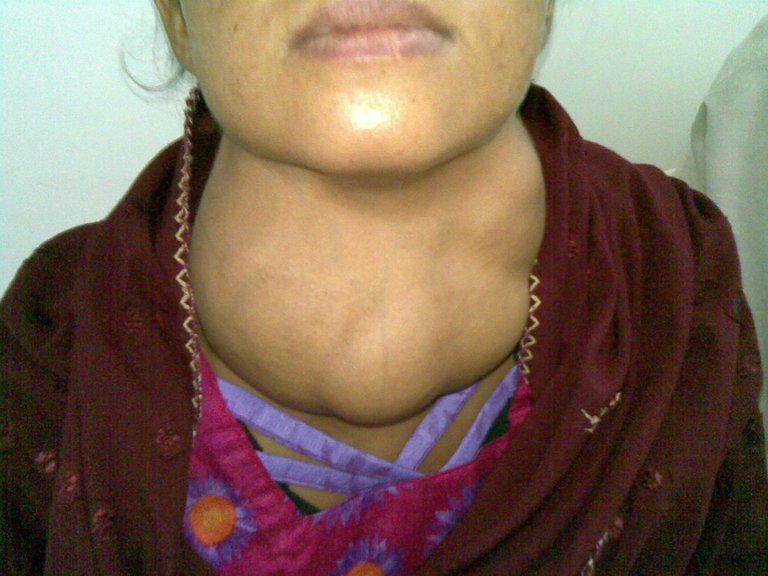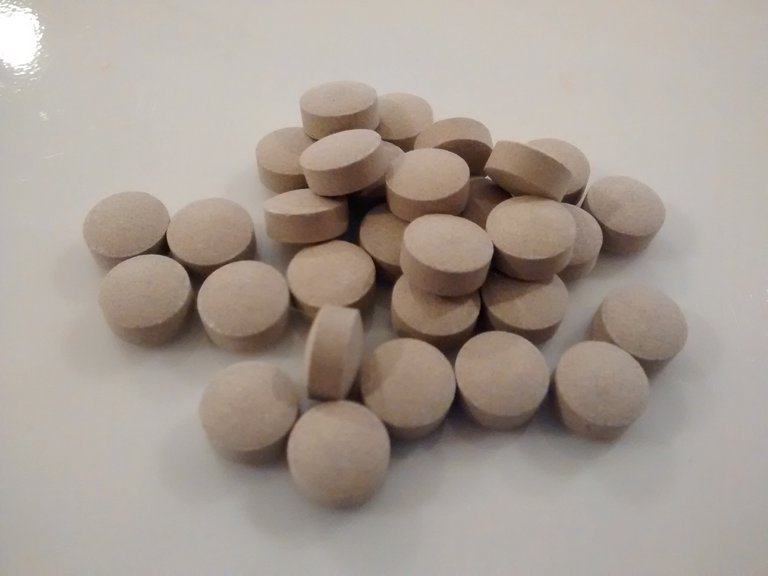Iodine - The Micronutrient Your Body Cannot Do Without
This entire step starts in the brain, specifically the hypothalamus. Do not forget at any time that the hypothalamus is responsible for homeostasis. The hypothalamus releases thyrotropin-releasing hormone (TRH or thyroliberin) which stimulates the anterior pituitary to release Thyroid Stimulating Hormones. This hormone triggers the thyroid gland to release T3 and T4 thyroid hormones, and Calcitonin - previous post
In one of my post, I discussed hypothyroidism and hyperthyroidism, where I discussed the thyroid gland. Today, I will be writing on Iodine which is an important element for thyroid production in the thyroid gland.
Iodine is a very important mineral in our body, and although it is a trace mineral it cannot be underestimated. It is an element and it is the number 53rd element on the periodic table. Iodine plays a lot of roles in our body starting from the Thyroid where it is needed to create the thyroid hormones T3 and T4. where the T4 is the inactive and abundant hormone in the body while T3 is the less abundant but active hormone in the body. Without iodine, there will be decreased metabolism in the body which would affect virtually all growth experiences. Every gland in the body concentrates iodine in one way or the other. As little as it is needed in the body, it also protects against excessive estrogen levels preventing cysts, and cancer in the breast, ovary, uterus, and prostate. Iodine is also important in the growth and cognitive function of the fetus, thereby helping to improve the brain of the child. You must have heard that pregnant women with low iodine levels tend to give birth to children with low IQs. Iodine can be available through certain sources and important sources of Iodine are drinking water and salt, others are vegetables and fruits grown on sea beds, also sea foods are an essential source of iodine.
Iodine in its little amount is very important in our body. It is very useful in detoxifying mercury, fluoride, bromide, and lead in the body. Iodine is very useful in preventing cysts that can become nodules, and then cancer. It is important in reducing estrogen dominance, it breaks down connective tissues and scar regeneration. Iodine is important in reducing skin tags and warts, with iodine in the thyroid, fat utilization, water and electrolyte balance, temperature regulation, and depressed mood heightening. Iodine deficiency means the Thyroid hormone functions are being affected.
People can have Iodine overload and the symptoms of not having enough Iodine is similarly bad just like the symptoms of having an excessive load of iodine in the body. Since it is needed in micrograms (around 100 to 200 micrograms daily). Iodine deficiency is more common than iodine overload but then, people can have overload, especially when taking potassium iodide. People with excessive iodine can suffer from Hashimoto's disease where the thyroid is triggered to produce hydrogen peroxide which is a corrosive chemical to the thyroid itself, but this isn't the cause of Hashimoto's disease. When Gluten or selenium isn't enough, it can lead to Hashimoto. People with Iodine overload have high energy that prevents sleep, fast pulse rate, heat intolerance, diarrhea, weight loss, hand tremors, and increased temperature. and thyroid storm.
Iodine deficiency can also lead to low thyroid in the body (hypothyroidism) which would lead to hair loss, cold intolerance, depression, weight gain, dry hair, and other symptoms from hypothyroidism, but there are other effects of low iodine in the body such as intellectual and cognitive disability, hearing loss, infertility, heavy period, fibrocystic breast, brain damage usually in infants and children. Iodine deficiency can be caused by goitrogen food such as cassava blocking iodine, radiation, bromine, and bromide.
Iodine deficiency tests can be done via certain tests such as Urine test, Iodine patch tests, Blood tests, and Iodine loading tests. Treatment of iodine deficiency includes iodine supplements containing potassium which should not be more than 150 micrograms daily.
https://www.who.int/news-room/questions-and-answers/item/nutrition-effects-of-iodine-deficiency
https://pubmed.ncbi.nlm.nih.gov/15292317/


Thanks for your contribution to the STEMsocial community. Feel free to join us on discord to get to know the rest of us!
Please consider delegating to the @stemsocial account (85% of the curation rewards are returned).
Thanks for including @stemsocial as a beneficiary, which gives you stronger support.